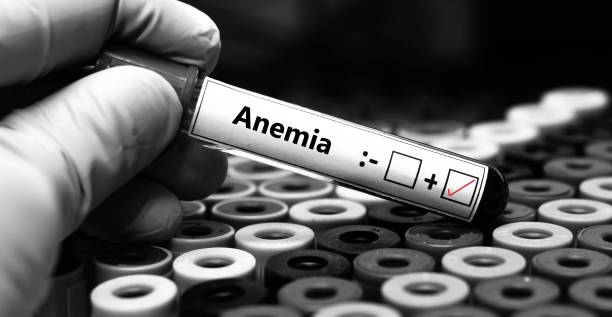What Is Iron and Why Does Your Body Need It?
Iron is an essential mineral that your body needs to produce hemoglobin. Hemoglobin is a protein in red blood cells that carries oxygen from your lungs to the rest of your body. Without enough iron, your body can’t make enough healthy oxygen-carrying red blood cells. As a result, your body doesn’t get the oxygen it needs to function properly, leading to a condition known as iron deficiency anemia. Iron Deficiency Affects
Iron is also important for energy levels, brain function, immune health, and even body temperature regulation. Both males and females need iron, though adult females are more likely to suffer from a deficiency.
Causes of Iron Deficiency
Iron deficiency can be caused by several factors, and it can affect anyone, regardless of age or gender.
1. Poor Diet
Not eating enough iron-rich foods like red meat, spinach, or beans can lead to low iron levels.
2. Blood Loss
Women are at higher risk due to menstrual bleeding. Internal bleeding from ulcers or gastrointestinal issues can also cause iron loss in both male and females.
3. Increased Need
Pregnancy, growth spurts in children, or heavy physical activity can increase the body’s need for iron.
4. Inability to Absorb Iron
Certain health conditions like celiac disease or surgeries affecting the stomach or intestines can prevent the body from absorbing iron properly.
Symptoms of Iron Deficiency
Iron deficiency symptoms can develop slowly and may go unnoticed at first. However, as the condition worsens, the signs become more obvious. Iron Deficiency Affects
- Fatigue and general tiredness
- Pale or yellowish skin
- Shortness of breath
- Dizziness or light-headedness
- Cold hands and feet
- Headaches
- Fast or irregular heartbeat
- Brittle nails and hair loss
- Craving for non-food items like ice or dirt (a condition known as pica)
If you notice any of these symptoms, it’s important to seek medical advice promptly.
How Iron Deficiency Affects Male and Females Differently
Though iron deficiency affects both genders, the reasons and impacts can vary.
In Females:
- More likely due to menstruation and pregnancy
- Can affect fertility and pregnancy outcomes
- May lead to tiredness, mood swings, and concentration issues
In Male:
- Often caused by internal bleeding or poor diet
- Can lead to reduced stamina, mental fog, and muscle weakness
Iron deficiency in either gender can affect quality of life, productivity, and overall health. Left untreated, it can lead to serious complications like heart problems or developmental delays in children.
Treatment and Prevention
The good news is that iron deficiency is treatable and preventable.
1. Diet Changes
Eat more iron-rich foods such as:
- Red meat and poultry
- Leafy green vegetables (like spinach and kale)
- Legumes (beans and lentils)
- Iron-fortified cereals and grains
- Dried fruits like apricots and raisins
Vitamin C-rich foods like oranges, strawberries, and tomatoes can help your body absorb iron better.
2. Iron Supplements
Doctors may recommend iron tablets or multivitamins, especially in more severe cases. However, do not self-medicate. Too much iron can be harmful.
3. Medical Consultation
For accurate diagnosis and treatment, consult a qualified medical professional. Iron levels can be checked with a simple blood test.
To speak with a certified doctor, book an appointment on the Virtual Doctors App or download the Virtual Doctors Healthplus App on Google Play for convenient online consultations.
Iron plays a critical role in keeping your body healthy and energized. Whether you’re a male or female keeping your iron levels in check is essential. Don’t ignore the warning signs. If you’re feeling unusually tired, short of breath, or have other symptoms of iron deficiency, it’s time to take action.
Join our telegram channel https://t.me/virtualdoctors for daily health tips for daily health tips
